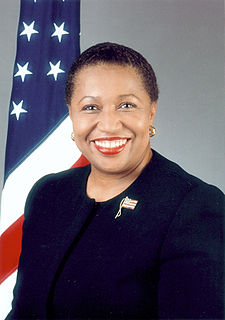A Quote by Andrew Ng
There are some outcomes in finance we don't want, and government should regulate that.
Related Quotes
Expected outcomes contribute to motivation independently of self-efficacy beliefs when outcomes are not completely controlled by quality of performance. This occurs when extraneous factors also affect outcomes, or outcomes are socially tied to a minimum level of performance so that some variations in quality of performance above and below the standard do not produce differential outcomes
The federal government overrules state laws where state laws permit medicinal marijuana for people dying of cancer. The federal government goes in and arrests these people, put them in prison with mandatory, sometimes life sentences. This war on drugs is totally out of control. If you want to regulate cigarettes and alcohol and drugs, it should be at the state level.
Experience has shown us that attempts to control the Internet will invariably fail. We should be instructed by the failed efforts of China to regulate political content, the efforts of America to regulate Internet gambling, or the efforts of Australia to regulate certain speech. By its very nature, the Internet will always resist such controls.





































